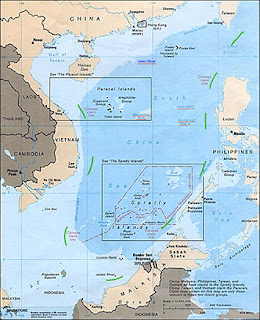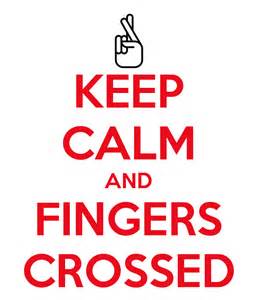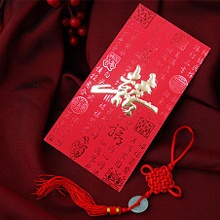This week's
report comes from the Micro Coffee Shop in Dongguan. Fortunately, the name refers neither to the size of the premises, rather generous, or to the size of the portions, again quite copious. For
some strange reason, the more the economy creaks and groans towards the
possibility of recession here, the more these coffee houses spring up. From the
point of view of a nomadic flaneur in constant need of refreshment and a place
to write, this is a very positive development. On the other hand, one wonders
what is happening to the underlying economy here as the slowdown starts to bite
deeper and deeper.
The coffee
house itself is just one of a chain one sees in South China. Micro Coffee's
shops seem clean, well managed and quite appealing. The seats are comfortable
with a pleasant selection of coffees on offer. What more could a peripatetic
flaneur wish for? Whilst enjoying the fayre on offer in such coffee houses, it
is not unusual to enjoy a little conversation, or even some gentle banter, with
the locals, or at least those that have a smattering of English.
One of the
crucial factors one has to realise when discussing any issue with Chinese
citizens living within the country is that their own sources of news are very
restricted. There is some debate, online and even occasionally on television,
but essentially the discussion is down to variations on the theme, rarely
disagreement with the theme itself.
This,
naturally, is very advantageous to the powers that be (a lovely phrase, that
one!). They don't really need to win the debate or convince anyone as other
governments around the world find themselves having to, they simply decide the
policy and instruct the media to broadcast in, together with instructions as to
how exactly it is to be framed.
Many years
ago, seems like another lifetime now, I studied the somewhat dark arts of NLP
(Neuro Linguistic Programming) as developed by Richard Bandler and John
Grinder. I say 'dark arts' as one pretty soon realises that although such
practices are often presented, and indeed used, in a therapeutic context, they
can and are readily abused by such amoral or immoral folk as those involved in
government or advertising, to name but two areas where these techniques have
been roundly used to exploit, cheat and generally take advantage of the unwary.
(On this
front, I think if I hear one more person assure me that advertising has”no
effect on me” I think I will start to tear out my already very short hair. The
last invulnerable soul who assured me of this being the case was the proud
owner of a Hummer…)
The Chinese
economy is in some trouble now. One hears of firms going bust on a regular
basis and simply by looking around it is plain to see that many shops are no
longer occupied, even in some of the primest of locations. The government here
though, is still as popular as ever, which speaks volumes for their skills at the
fine arts of presentation and reframing. In NLP terms, a reframe is used to
realign or reshape one's thinking on a given issue or situation. It is a very
powerful technique, perhaps more so because of its ubiquity; there is scarcely
any situation that a skilful reframe cannot change one's perception of.
At the recent
New Year's celebration it was very apparent that the amount of money spent by
local government, usually so generous in such affairs, was relatively mean. The
fireworks in particular were noticeable by their absence. This sad state of
affairs was presented as the administration practising those fine traditional
Chinese values of prudence and economic restraint. A classic reframe, but one
that worked very well, some people even telling me how much they admired the
government for returning to such sensible ways.
Basically, in
China, if you can couch the reframe in terms of nationalism and especially in
terms of traditional Chinese culture, you are halfway there already. Those in
power, like those who remain in power around the globe, know exactly what
buttons to press when needed and exactly how to structure a needed reframe to
cast themselves in the best possible light.
Another
classic tactic along these lines is to point out that although things may be
bad here, they are a lot worse somewhere else. Far too many times now, when the
subject of the poor air quality comes up, I hear people referring to the awful
smogs of London. Now, while it is true that there were indeed awful smogs in
London, these mostly came to an end in the 1960s with the Clean Air Act. To
listen to many people hear one would think that the news reflects the current
state of affairs in the UK's capital. In one recent dinner conversation, my
fellow guests seemed genuinely surprised, even a little shocked, when I showed
that day's figures from Dongguan and London via an app on my Windows phone.
London's air quality figures were about one fifth of those in Dongguan (pm2.5s at around 35
compared to Dongguan's 180). Beijing, needless to say, would suffer even more
by comparison.
Perhaps the
bleakest and most cynical tactic of all in times of economic hardship is the
call to patriotism. Nationalism here is already very strong and needs but
little stoking to work people into something of a patriotic fervour. In this
way, China is very different from more mature systems such as those found in
Europe or America. Often in those cases there are enough worldly wise folk
willing to point out such tactics that the politicians are often weary of employing
them. Not so in China where if there is any opposition, it will scarcely dare
to raise its voice (perhaps wisely) anyway.
Currently
China is involved in territorial disputes with at least seven other states, any
of which can and is used to stir up nationalistic feeling when required.
Perhaps of these, the dispute in the South China Sea is the most likely to
flare up into something very dangerous. In this particular instance, China
finds itself in dispute with the Philippines, Vietnam, Brunei, Indonesia and
Malaysia. One worries that, given the current deteriorating economic situation,
it could prove all too tempting to focus the population's attention away from
the problems at home and into such dangerous waters.
Back in the
coffee house some of my fellow imbibers are now enjoying a game of cards,
whilst others watch basketball on a 42inch screen. The latter is very popular
here, Dongguan in particular being known as the 'City of Basketball'.
Personally, it has never been to my tastes, consisting as it does of a lot of
very tall men running down one end of a court to put a ball into a net, then
running up the other end and doing the same thing there. The highlight seems to
be when they occasionally bump into each other but, as highlights go, its not particularly
riveting.
All seems
normal, perhaps even prosperous at this level. Beneath the surface though, it
is not hard to detect the stark reality of an economy and a people who are beginning to scent the unpleasant odour of
recession. As ever in China, the stage managing is very impressive, but also as
ever, economic reality will, in the end, prove very difficult to conceal
forever.



















